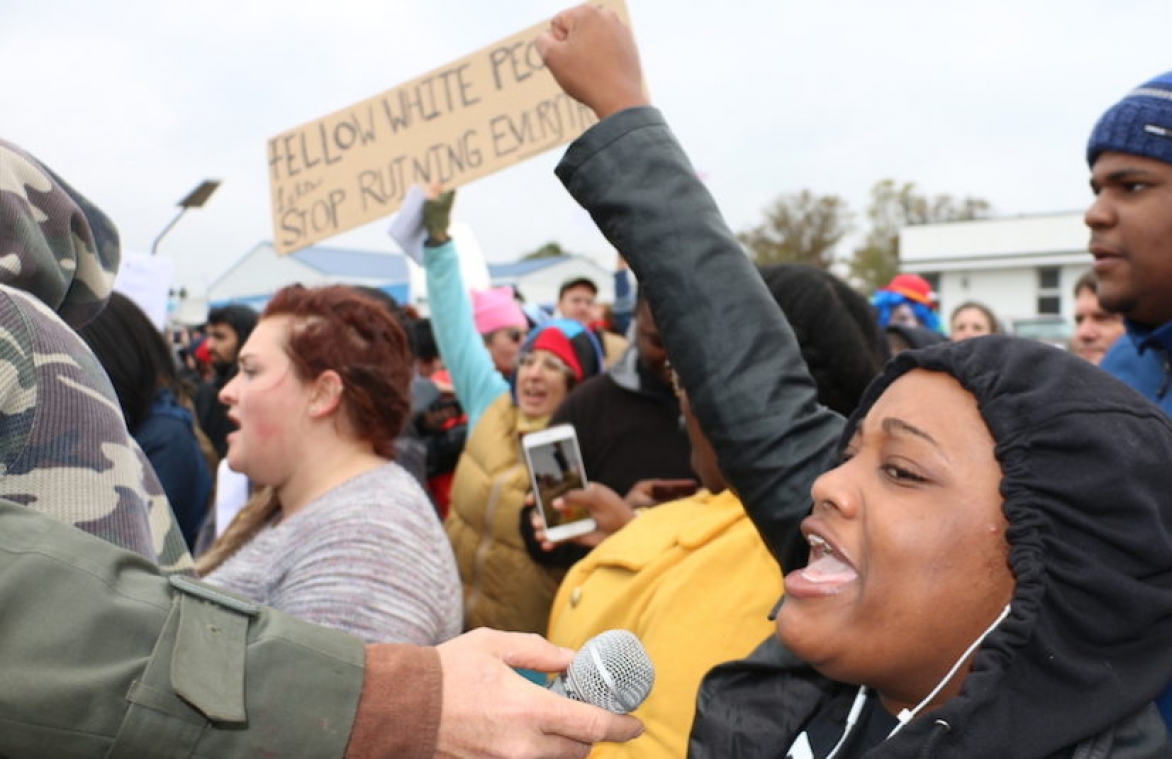Sometimes it seems we’ve replaced the First Amendment right of the people “peaceably to assemble” with “If you can’t join ‘em, beat ‘em.”
In incidents around the country this year, from Middlebury College in Vermont to University of California-Berkeley to Charlottesville, Va., protesters on different sides of social issues have clashed violently — and in the case of Charlottesville at a white-supremacist rally, fatally.
The notion of a “heckler’s veto” in First Amendment law appears to have infected our political discourse, though things have gone way beyond heckling.
Don’t like a speaker? Shout him down until he leaves the stage. That’s the traditional idea of a heckler vetoing another’s speech, if such a thing can be termed a tradition. An example of a heckler’s veto occurred last weekend when counter-protesters drowned out speakers at a White Lives Matter rally in Shelbyville, Tenn.
See MTSU’s student newspaper Sidelines story and photo coverage of Shelbyville rally
But at least there was no violence. What if you really, really don’t like a speaker or a rally? Attack physically, or threaten to. Erupt in violence before or during the rally or speech to shut it down. That’s the ultimate veto of the free expression and exchange of ideas.
The First Amendment was designed to prevent the government from squashing dissent by prohibiting peaceful rallies and their attendant speechmaking. In the civil rights era, government at different levels regularly tried to do just that. South Carolina got sued and lost in U.S. Supreme Court in Edwards v. South Carolina (1963), with the justices holding that the state had violated the Constitution by dispersing a peaceful demonstration.
Today in the United States, it’s often not governments but mobs that try to throttle the spirit of free expression.
Thus, a white supremacist plows his car into a group of protesters in Charlottesville, killing 32-year-old Heather Heyer. “Antifa” demonstrators smash windows and intimidate rightists and others hoping to hear Breitbart provocateur Milo Yiannopoulos speak at Berkeley.
At Middlebury in March, a professor was injured when leftist students disrupted a speech by the social theorist Charles Murray. Middlebury later disciplined the students involved, and then came out with an interim policy designed to prevent such disruptions in the future — unfortunately, by giving college administrators the option of canceling speaking engagements.
Here’s how part of the policy reads:
“In those exceptional cases where [a] review indicates significant risk to the community, the president and senior administration will work with event sponsors to determine measures to maximize safety and mitigate risk. Only in cases of imminent and credible threat to the community that cannot be mitigated by revisions to the event plan would the president and senior administration consider canceling the event.”
In other words, Middlebury College officials accept and tremble at “credible threats” as uncontrollable circumstances, kind of like the weather. Rather than take the necessary steps to safeguard free assembly and speech, one must shrug and cancel an event if things look bad.
This is the sort of reasoning behind campus speech codes, which repeatedly have been found unconstitutional at public campuses. And though Middlebury is a private college, not government-run and not bound by the First Amendment if it doesn’t want to be, it nonetheless claims to be “devoted to the fundamental values of free expression and academic freedom,” in the words of Provost Susan Baldridge.
It would seem that what ought to be canceled is not free speech and peaceable assembly, but violence and intimidation against those indispensable rights.
Brian J. Buchanan is the former managing editor/online for the First Amendment Center in Nashville.

